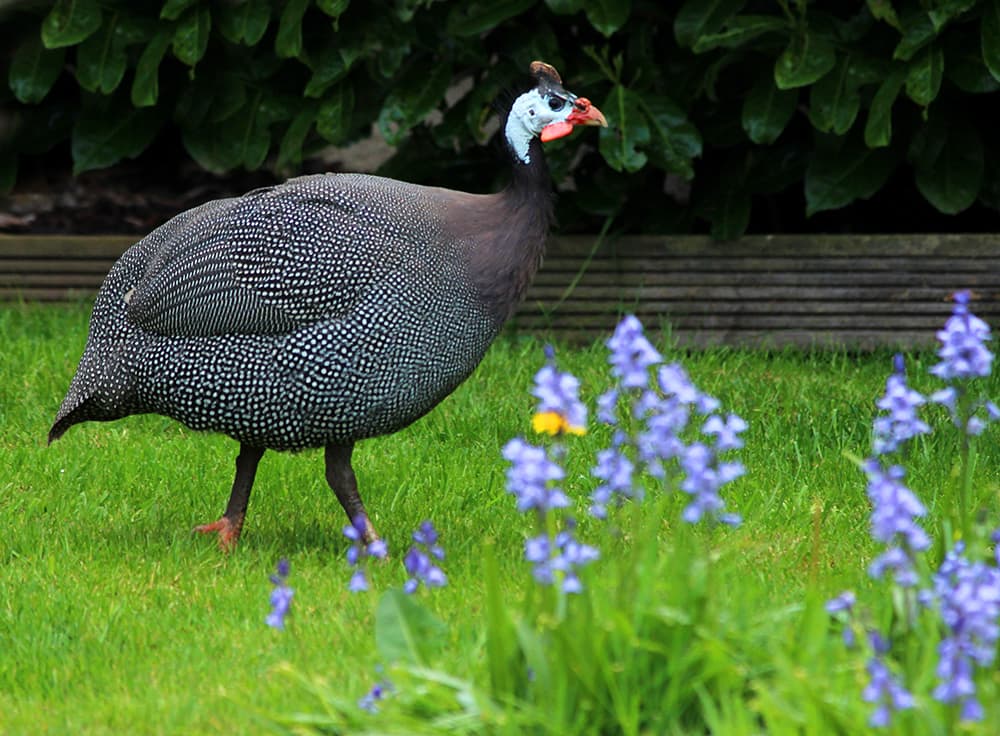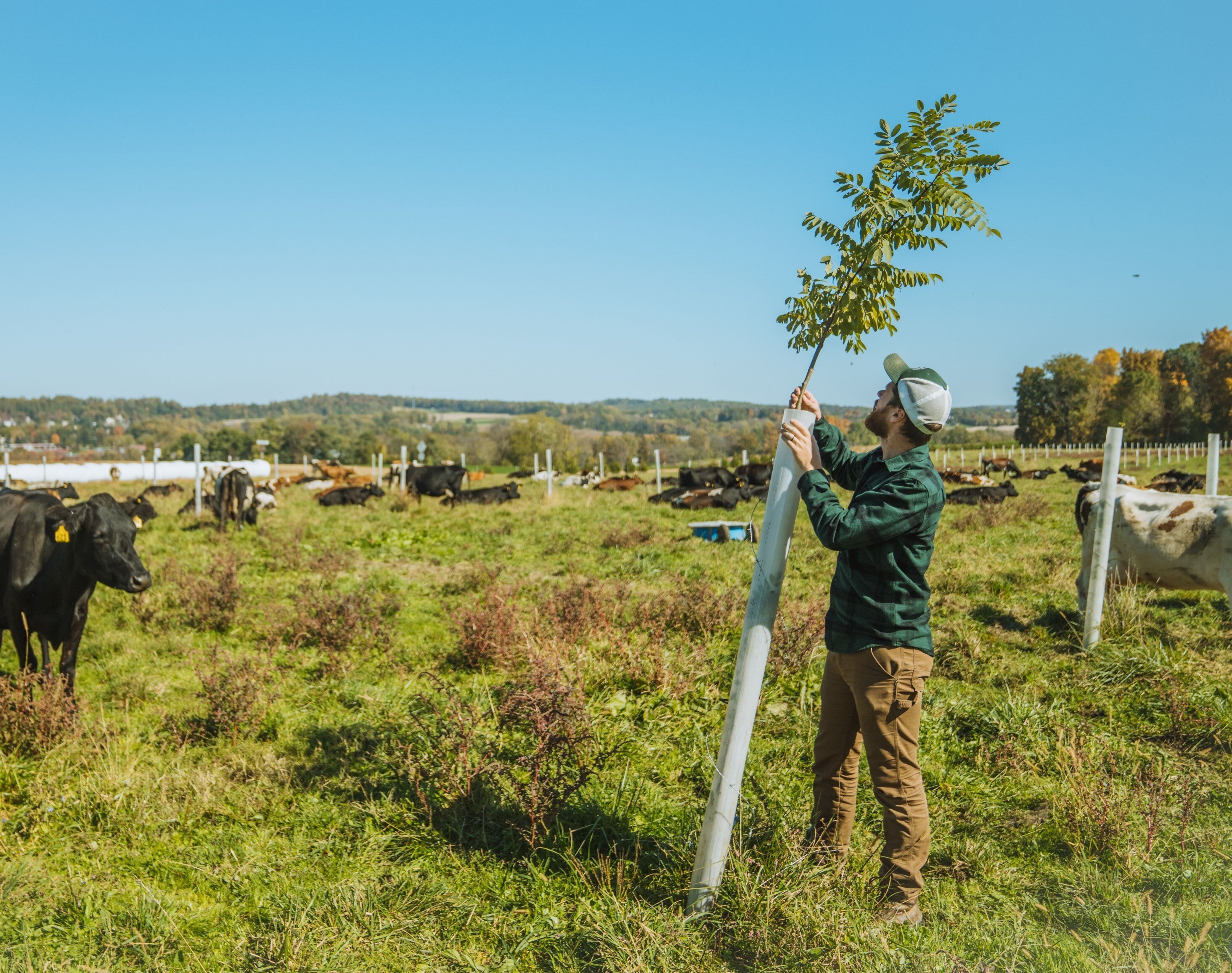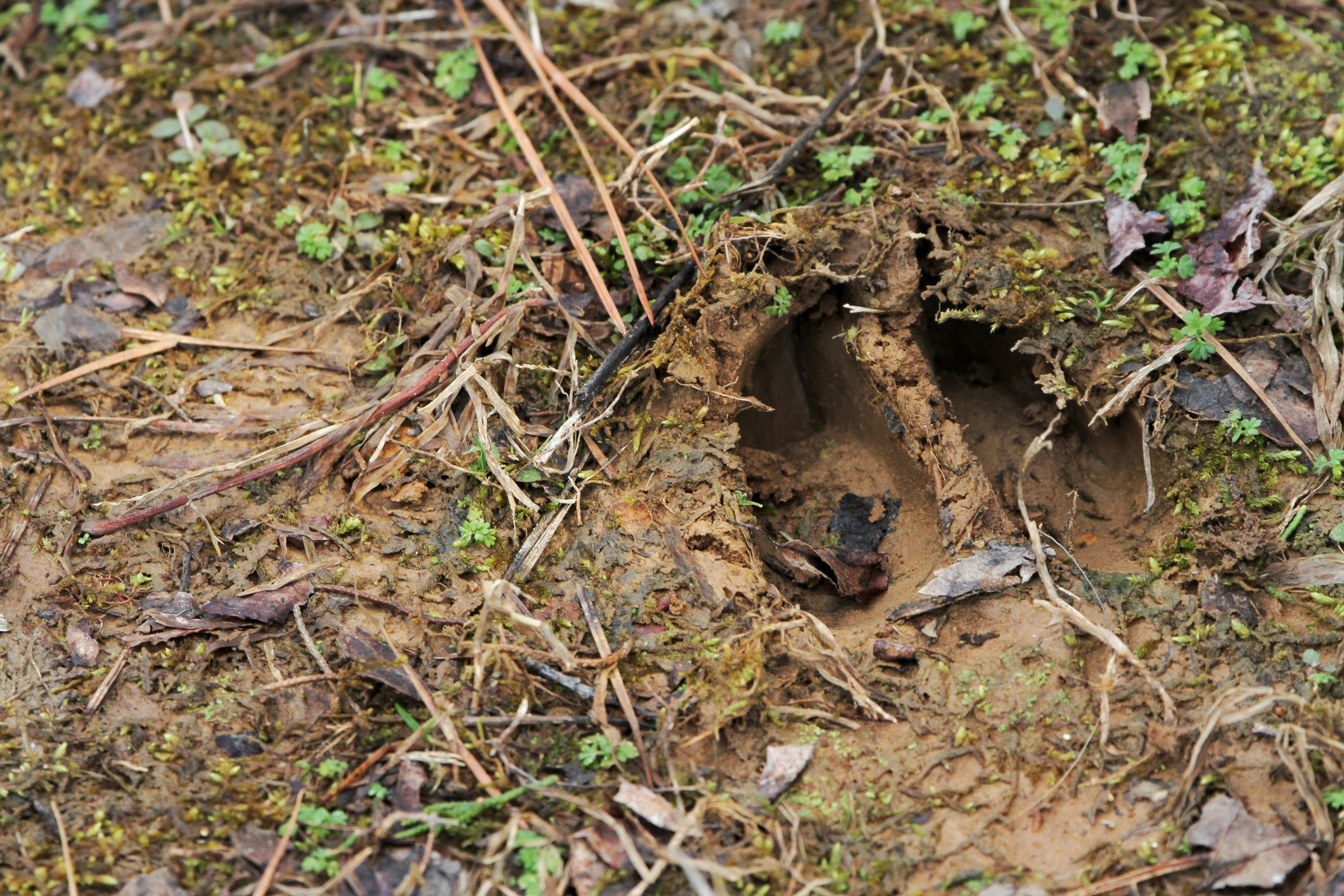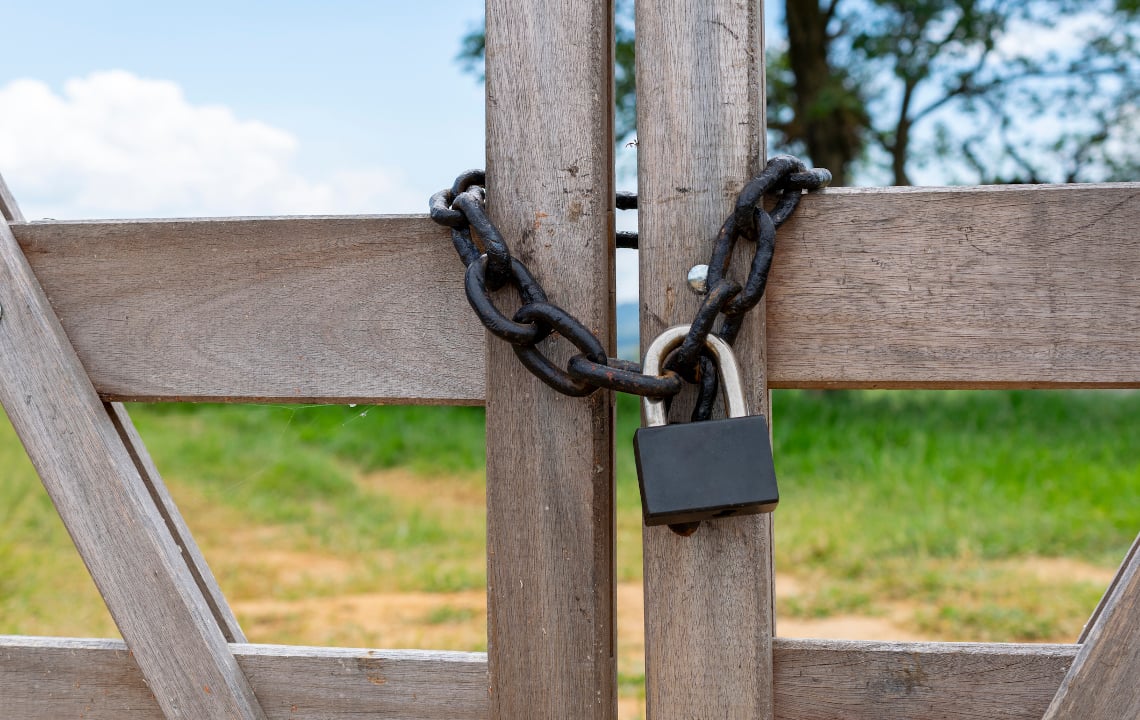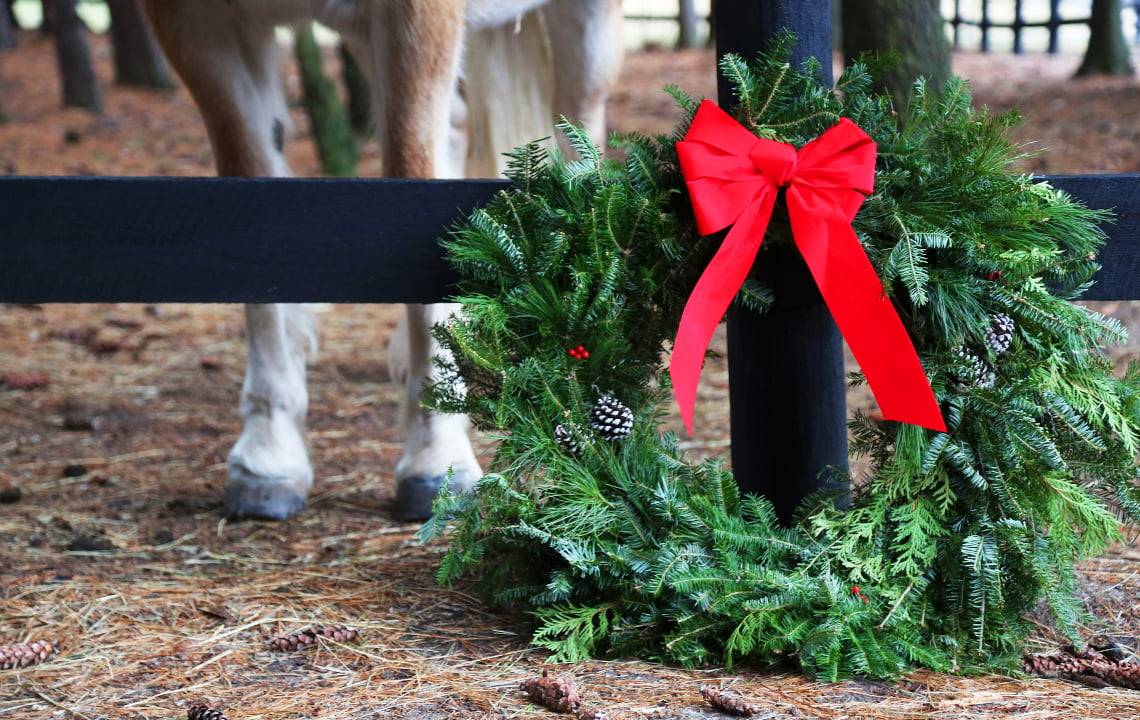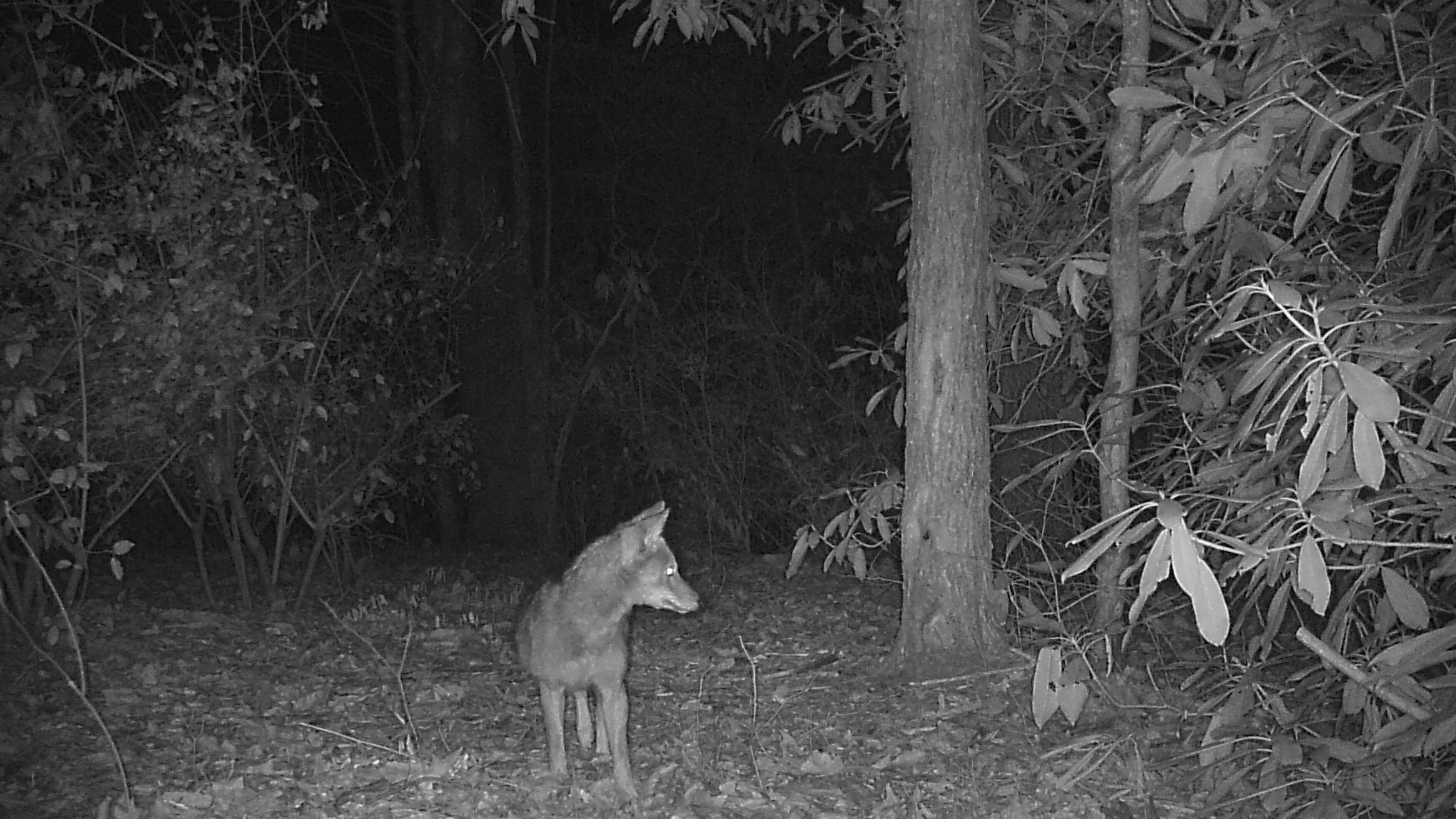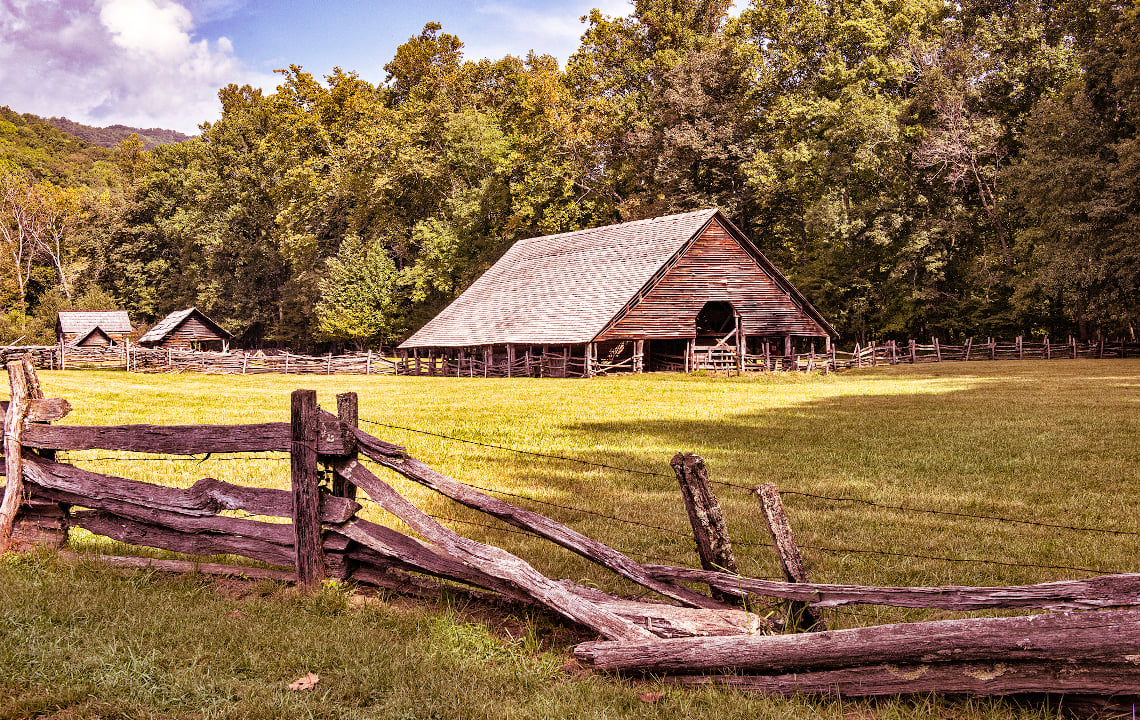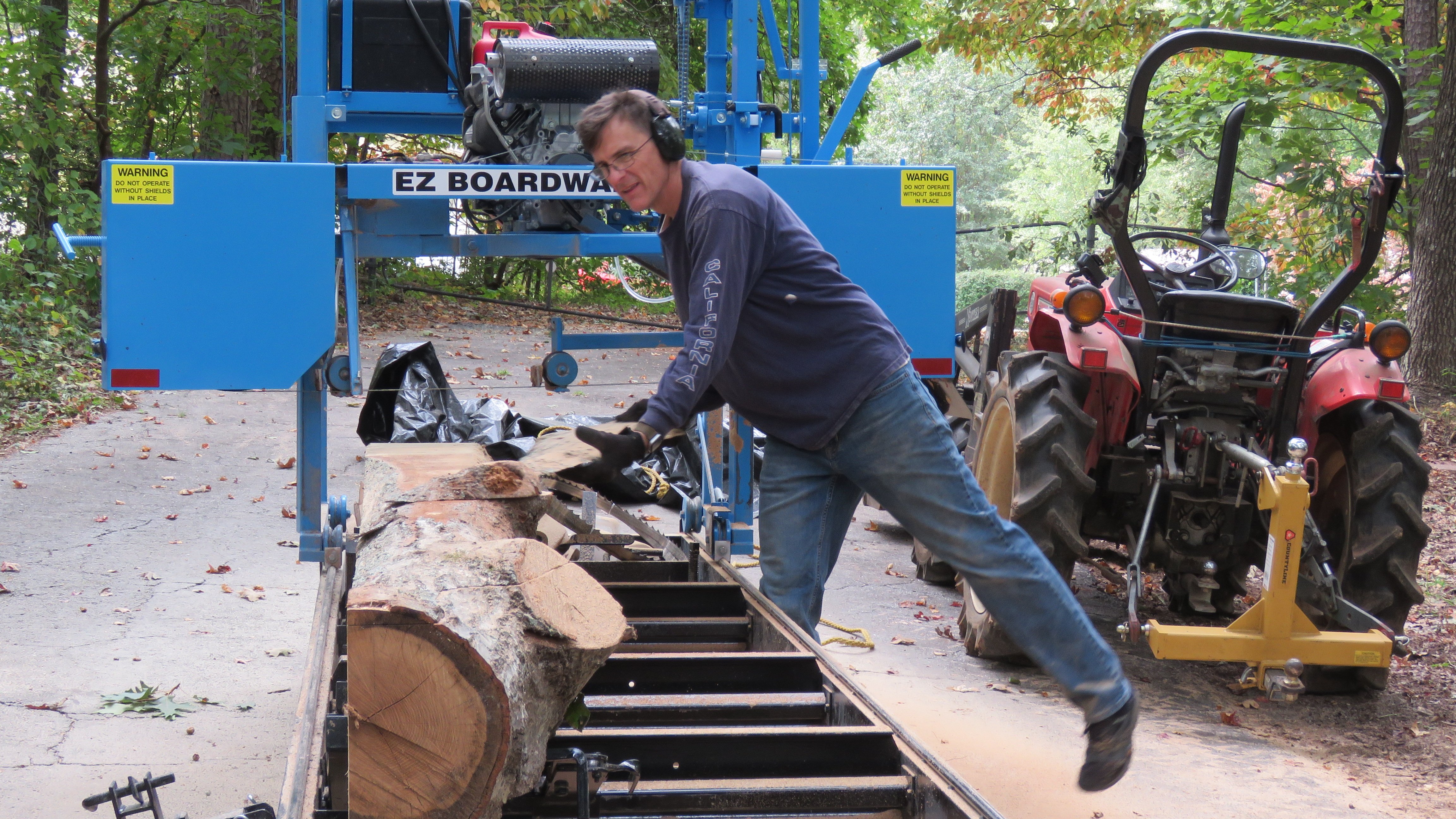Known as the “security alarm of the country,” these birds aren’t your typical backyard chickens. Here’s what you need to know to get started in the Guinea Fowl game.
Guinea fowl, members of the Numididae family, and are more closely related to pheasants and partridges than chickens. The hardy bird gets its name from the region in west sub-Saharan Africa from which it originated. Today, Guinea Fowl International estimates there are roughly 14,500 guinea farms in the United States—and their popularity is on the rise.
Guinea fowl can be a great addition to your land but they aren’t for everyone. So, before you run out and purchase a flock of keets (guinea young), read on for answers to some of your most pressing guinea fowl questions.
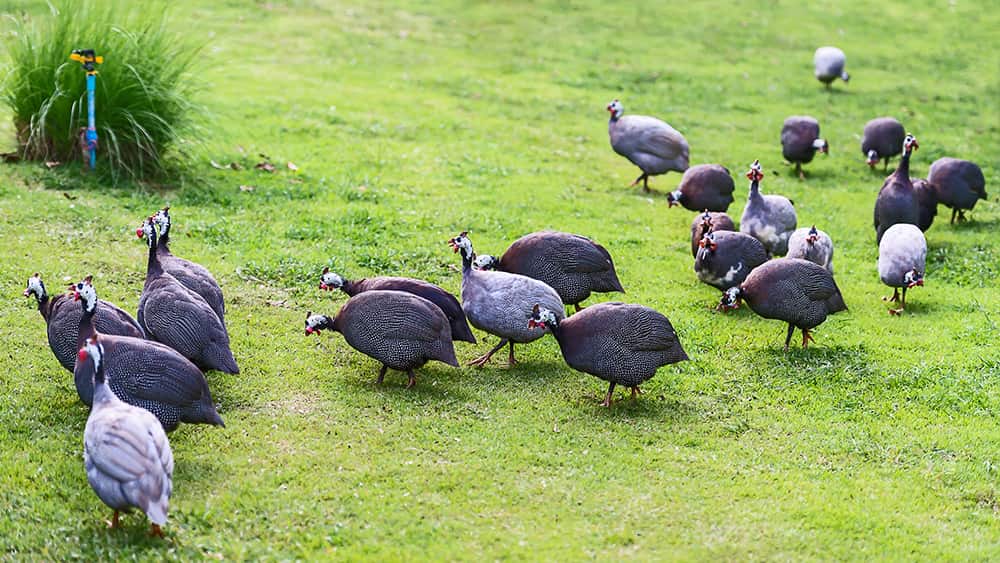
How are guinea fowl different from backyard chickens?
“I always tell people, if you’re expecting chickens, you should not get guineas,” says Cindy Gibson, president of Guinea Fowl International. “They’re very different from chickens.”
Chief among those differences, according to Gibson:
They need a lot of space. Where urban farmers could potentially set up a coop in a mid-sized backyard, Guineas need one or two acres minimum—preferably more. That’s because, unlike chickens, Guineas are hardwired to run with a large crowd.
“Guineas are not happy in small groups,” says Gibson. “They do best in a flock. They’re very flock-oriented. They have a specific social structure. Everybody’s got a job to do, and they get very stressed and will act out, if they’re kept in small numbers.”
Gibson recommends no fewer than 14 guineas in your starter brood.
They’re wilder. Guineas are much less domesticated and need to roam. They’ll resist a coop unless trained from a very young age, and they’re physiologically programmed to seek light. This causes them to want to go up into the trees at night to seek out those last rays of sunshine.
“It’s just not in their nature to go into a building,” says Gibson. “Chickens evolved from jungle fowl, and guineas evolved from grasslands or savanna fowl, and so chickens will seek a dark secluded space, and guineas just the opposite.”
They’re more independent. Guineas are very disease- and parasite-resistant, “so a lot of things that you sometimes have to do with chickens: treat with antibiotics, worm them and so on, you just rarely have to do anything like that with guineas,” says Gibson.
Another bonus: they’re cleaner than chickens. Their manure is drier, so you don’t have to clean out the coop as often. They’re also voracious pest eaters and don’t require much supplemental feed.
“And the best thing about guineas as compared with chickens is they won’t tear up your vegetable garden the way chickens will,” says Gibson.
What makes guinea fowl ideal for farms?
 They’re Great for Pest Control
They’re Great for Pest Control
The most widespread use for guineas on farms in the U.S. is insect control. Guineas are experts at hunting down pests like ticks, fleas, Japanese beetles, and tomato horn worms without tearing up garden plants. They can even chase down small snakes and won’t lose interest in chasing grasshoppers.
“They’re not going to get rid of every kind of insect, but they’re very helpful with certain types of insects,” says Gibson.
They’re Good Watchdogs
According to the Complete Guide to Poultry Breeds by Melissa Nelson, “Guineas…are raucous and protective of their territories, making them ideal barnyard alarm systems.”
Guineas are even better than a rooster when it comes to predator watch. And while Gibson has heard stories of guineas acting as guard animals—banding together to run off a snake or a even a fox—“having guineas is not going to solve all your predator problems, but they are, if they’re kept in a flock, a pretty good alert system for the rest of your birds,” she says.
They Won’t Outlive Their Usefulness
While guineas can be used for their meat and eggs (they’re seasonal layers with smaller, slightly richer-tasting eggs), they tend to be far more useful for their longevity.
“A chicken’s so-called productivity on the homestead is about maybe two or three years, and then you’ll maybe want to consider taking the chicken out of your laying situation and processing it for meat,” says Gibson. “The difference with guineas is they do what they do, their pest control, right up until their dying day. So to a lot of people, it’s not really beneficial at any point to take them for their meat unless you just really happen to like guinea meat.”
Can guinea fowl coexist with chickens?
Because guineas are flock-oriented and highly territorial, it’s important to introduce them into an existing flock of chickens when they’re young. Start by acquiring guinea chicks—called keets—who are just days old, up to a couple weeks.
“If you want to integrate them into an existing flock, it’s really good if you can have a brooder situation within your existing coop,” says Gibson, “such as a sectioned off corner with galvanized wire so that they can see and interact with the flock. Then you would start a period of short releases to let them out during the day and heard them back in to train them to come back into the coop at night, which is not really in their nature, so they have to be trained to do so, and also to get them used to interacting with the flock.”
Gibson recommends fully integrating before the guinea keets reach six weeks, when they are still naturally deferent to older birds.
What’s the downside of having Guinea Fowl?
There are many benefits to introducing guineas to your farm or homestead. Of course, it’s not all fun and games.
Guinea fowl can be loud. While Gibson notes their volume isn’t much more than a typical rooster, their affinity for large flocks can cause quite the ruckus.
They can be bullies. Sarah Toney, a North Carolina homesteaders and blogger at the FreeRangeLife.com notes: “Our guineas were raised from keets with chicks. They were together from the beginning. When we added the young birds—both guinea and chicken—to our mature flock, the usual fight for top bird began. Six months later, half our chickens were missing their tail and back feathers.”
They need to be trained. Guineas don’t respect property boundaries, they like to roost in trees, and they’re not naturally inclined to go into a coop at night. These aren’t necessarily downsides, but they are aspects of the guinea’s personality.
Some people think they are just too much trouble or they’re stupid or whatever,” says Gibson. “[But] if you understand their nature and take advantage of their instincts, then they can be quite a good addition to your homestead.”
For more resources and information on breeders in your area, visit guineas.com.


